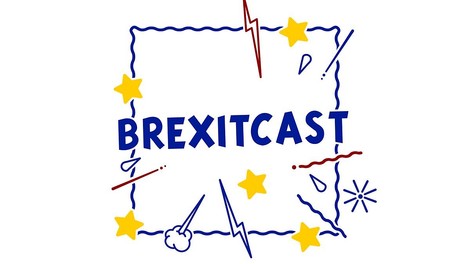Your podcast discovery platform
Curious minds select the most fascinating podcasts from around the world. Discover hand-piqd audio recommendations on your favorite topics.

piqer for: Globalization and politics Global finds
Sezin Öney, originally from Turkey, is based in Budapest and Istanbul. She her journalism career as a foreign news reporter in 1999 and she turned into political analysis as a columnist since 2007. Her interest in her main academic subject area of populism was sparked almost decade ago; and now she focuses specifically on populist leadership, and populism in Turkey and Hungary. She studied international relations, nationalism, international law, Jewish history, comparative politics and discourse analysis across Europe.
Brexit: Here Is A Link To Catch The Thread
A lot is (always) happening on the Brexit front. On 14 March, British MPs have voted for a delay in the Brexit process for three months or more, after struggling to agree on what terms the United Kingdom should be leaving the European Union on the previously agreed date of 29 March. In other words, this vote was on delaying Brexit, after the House of Commons have rejected the idea of leaving the European Union without a deal. It should be noted that the vote is not binding, and therefore, under current law the UK could still leave without a deal on 29 March. The Brexit deadline itself is legally binding, and cannot be extended without the agreement of all 27 other EU countries.
Even if the EU did agree to extend the deadline to enable the divided British Parliament to agree on a Brexit deal, the governing Conservative Party and the House of Commons in general is so divided that they may not agree on a deal. As a reminder, deals proposed by Prime Minister Theresa May, the deals that were negotiated and agreed with the European Union, have failed twice to get through the House of Commons.
And by March 24, the Sunday newspapers were full of allegations of plots against the Prime Minister Theresa May. If the Conservative MPs were to agree on a successor, there may not be enough time before the Brexit deadline for a leadership election. Theresa May had reluctantly conceded in December 2018 that she would quit before the next general election, which is not until 2022.
The "Brexitcast" podcast series by the BBC offers insight to all things Brexit; they are the ultimate source to keep up with the latest events.
In this episode called "Très Spikey", Laura Kuenssberg, Katya Adler, Adam Fleming and Chris Mason discuss the latest developments focusing on the EU perspective as observed from Brussels, as well as the London front. Here is you ticket to catch up with the Brexit trail with this podcast.